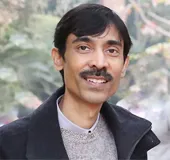 World Water Day
World Water Day is observed each year on 22 March since 1993 to raise awareness of the importance of water, exchange ideas to overcome crises, and take actions for its sustainable use, consumption, and management. The UN-led initiative is important in the context of achieving Sustainable Development Goal (SDG) 6: Water and sanitation for all by 2030.
Despite numerous global and local initiatives, a large population of the world faces difficulty in accessing safe water. The inadequacy seriously affects their health and daily activities such as education, work, and travel.
In India, for example, the government has been making efforts to address water supply issues and provide piped water to the entire population. In addition to state government initiatives, the national government offers assistance through various schemes and programmes, such as
Jal Jeevan Mission (for providing tap water connection to every rural household by 2024),
Atal Mission for Rejuvenation and Urban Transformation (for providing tap water connection to every urban household in all statutory towns) and
Jal Shakti Abhiyan (for saving and conserving rainwater).
As of March 2023, of the total 194.26 million
rural households in the country, up to 60 percent have been connected with tap water. At the state/union territory level, variations are noted, with 100 percent coverage of rural households in Goa, Andaman and Nicobar Islands, Dadra and Nagar Haveli, Daman and Diu, Haryana, Gujarat, Puducherry, Punjab and Telangana. At the other end, there are nine states where less than 50 percent of rural households are connected with tap water. These include Madhya Pradesh, Kerala, Meghalaya, Assam, Chhattisgarh, Rajasthan, Uttar Pradesh, Jharkhand, and West Bengal.
Indian cities have experienced both planned and unplanned developments, and a large population living in unplanned (or informal) areas, such as slums and unauthorised colonies, lacks access to piped water.
In terms of numbers, the overall situation looks better in urban areas of India, where over 80 percent of
urban households have water facility within premises. On the ground, severe city-level and intra-urban inequalities in water supply exist. Generally, Indian cities have experienced both planned and unplanned developments, and a large population living in unplanned (or informal) areas, such as slums and unauthorised colonies, lacks access to piped water.
Eventually, piped water networks will be expanded to cover the remaining rural households. However, in populous Indian cities and mega-urban regions, a water crisis is emerging. The country is experiencing urbanisation, and the supply agencies are finding it increasingly difficult to meet the water needs of a growing population.
In February 2023, the
water demand in India’s capital, Delhi, was 1,260 million gallons per day (mgd), whereas the water supply agency was producing 990 mgd. Although about 93 percent of the city’s population is covered by the piped network, water supplied is less, and the situation worsens during the summer months. To augment supply and address challenges in cities, numerous initiatives are underway.
Illegal extraction of groundwater is being prevented by regulating its use and levying environmental compensation charges on unauthorised consumers. The effort is to control the problem of decline in the groundwater table.
Installation of rainwater harvesting structures has been made mandatory for buildings, and those complying with the rule are entitled to a rebate in their water bill. The method is introduced for recharging groundwater and using rainwater for non-potable purposes.
Neglected water bodies (such as lakes, step-wells, and ponds) are being rejuvenated, and new ones being created to hold rainwater. The practice also helps in groundwater recharge.
Installation of rainwater harvesting structures has been made mandatory for buildings, and those complying with the rule are entitled to a rebate in their water bill.
Samples of treated water are checked regularly in laboratories by both government and independent agencies to ensure quality. The issue of industrial effluents disposal in surface water bodies is being addressed by laying interceptor sewers.
The problem of water lost in production and transmission is being controlled by strengthening water accounting/auditing measures, using sensor-based leak detection technologies, and replacement of old pipelines. Wastage is also being prevented by providing metered connections, and introducing rational water tariffs based on the principle of “use more, pay more”. Raising water conservation awareness among citizens is an important part of the strategy.
Sewerage networks are being extended, and work has begun on development of decentralised wastewater treatment plants to cover the entire city.
In newly developing areas, the emphasis is on integrated development of water, sewerage, and drainage infrastructure. Further, water conservation features are being incorporated during the construction phase.
To conclude, various aspects of concern are being addressed to improve the water situation in Indian cities. A positive impact of these efforts is seen in increasing coverage of the population through piped water networks and improved water quality. Greater efforts by government agencies and citizens would be required to achieve the goal of water for all. The government’s engagement with various consumers and stakeholders is important for understanding and responding to concerns. Some water supply-related activities can be contracted out to the private sector, such as operation and maintenance, billing and collection. Governments must also strengthen their financial, regulatory, planning, and service delivery practices.
The views expressed above belong to the author(s). ORF research and analyses now available on Telegram! Click here to access our curated content — blogs, longforms and interviews.




 PREV
PREV


